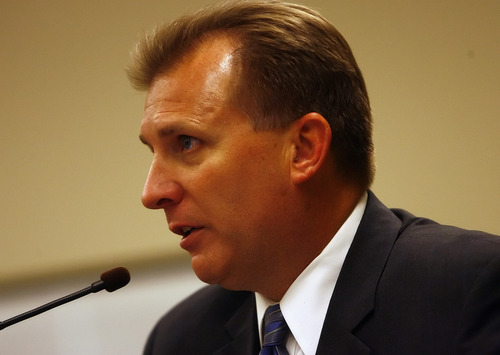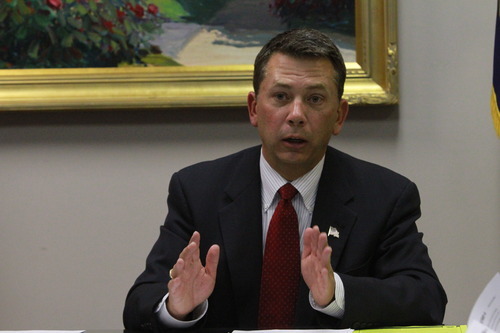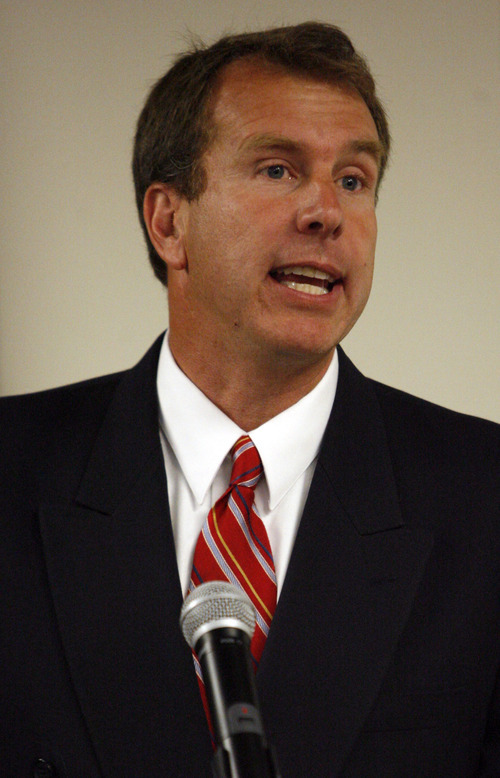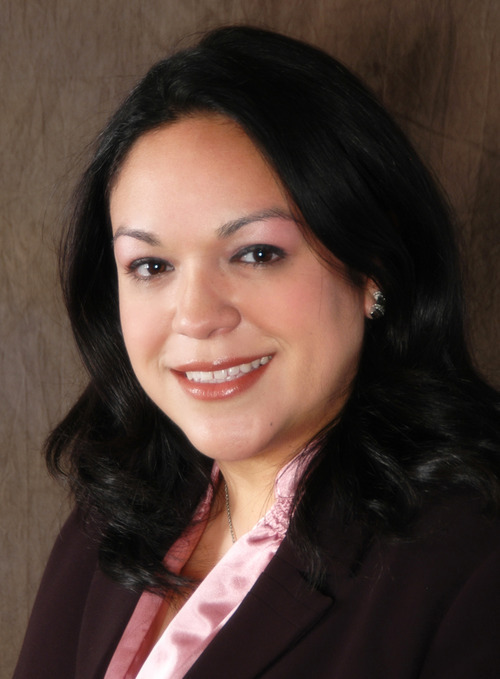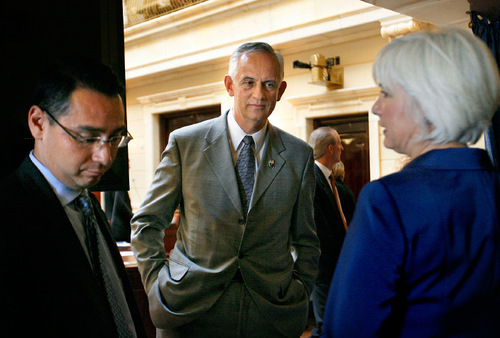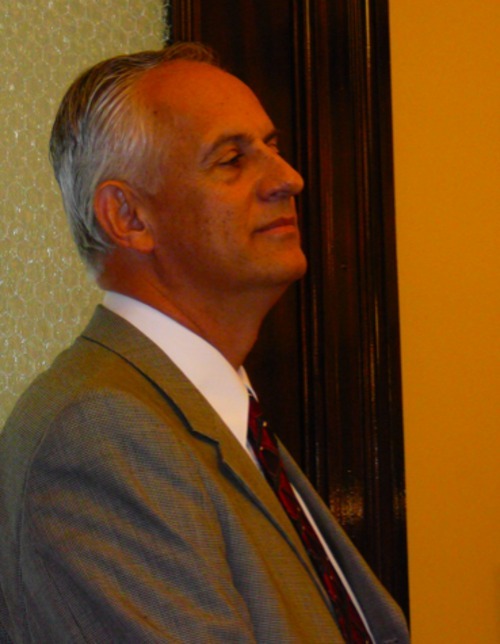This is an archived article that was published on sltrib.com in 2010, and information in the article may be outdated. It is provided only for personal research purposes and may not be reprinted.
Utah Senate leaders are trying to pull together parts of several immigration bills into a so-called omnibus bill to avoid a legislative logjam that could chew up weeks of the six-week session.
And one of the casualties of such a comprehensive approach could be Rep. Stephen Sandstrom's high-profile, enforcement-only bill.
Senate President Michael Waddoups, R-Taylorsville, said Thursday it was "probably a fair characterization" to say Sandstrom's bill, in its current form, wouldn't win House approval.
"I don't think he's got the votes to pass that in the House," Waddoups said. However, Waddoups did say if it underwent some modifications, "it could very well be in a format we're excited about."
Sandstrom — as recently as two weeks ago — said he was mostly finished with making changes to his legislation. He was unavailable for comment Thursday.
Rep. Chris Herrod, R-Provo, who has been a staunch supporter of Sandstrom's bill and has often appeared in forums throughout the state to defend it, said he was surprised by Waddoups' remark.
"I just have a hard time believing that," Herrod said. "But the Senate is a different body."
The maneuvering behind the scenes by lawmakers in the past few weeks on the immigration issue illustrates the sensitive and difficult tightrope the Legislature is walking heading into the session beginning Jan. 24.
Senate Majority Leader Scott Jenkins said last week's Republican caucus revealed divisions on how to approach the immigration issue, and when he suggested rolling portions of bills together, he couldn't get a consensus. He said leadership planned to press harder on moving in that direction when the caucus gathers again Jan. 10.
He worried the Legislature could have its productivity crippled while grappling with hundreds of bills dealing with everything from education to health care, all while coping with a tight budget.
"Look, I know we have 16 [immigration bills] and we could have 20 easy. This could end up taking weeks and weeks of our time and just destroying everything else," Jenkins said. "We could free ourselves from a week and half of our time if we could put together an omnibus bill."
Waddoups said there isn't much interest in the piecemeal approach and "doing a little bit here and a little bit there." Instead, he said, it has to be comprehensive — noting Gov. Gary Herbert has already signaled he isn't interested in a single-issue immigration bill.
One plan that has been floated is getting Sen. Curtis Bramble, R-Provo, to sponsor the encompassing bill that tackles enforcement, education, employers and guest-worker possibilities.
Bramble, who met with Sen. Luz Robles, D-Salt Lake City, this week to discuss immigration bills, said he hasn't been formally asked to carry any encompassing bill forward.
"It's not about me, but it's about people's lives and whether we can get the support of a diverse group of people to actually tackle the problem," Bramble said. "If that means sponsoring a bill, then, yes, I'd be willing to do it."
Several lawmakers — including Waddoups — believe Bramble could be a good pick.
"He works very hard and would be a logical choice," Waddoups said.
Robles, whose bill has the support of the Sutherland Institute, a conservative think tank, said she was willing to go down the path of consolidation. Currently, her bill would require undocumented immigrants here for longer than 18 months to get accountability cards that would allow them to legally work in the state, provided they pass criminal-background checks. It would also require them to enroll in classes to become proficient in English. Critics charge it would require a federal waiver to operate and suggest that would be virtually impossible to secure.
"Overall, I'm fine having some of those pieces being put into the language. It's the very specific details that are going to be the complicated part," Robles said. "But I've been in the minority party, so I'm used to compromising and working with [Republicans]."
She also suggested Bramble might be the right choice given his experience authoring and getting the driver-privilege card passed five years ago.
"He gets it," Robles said.
The driver-privilege law allows undocumented immigrants to obtain permits that cannot be used for identification purposes but does clear the way for them to purchase auto insurance.
Consolidation or outright dropping of bills is already at work in both chambers. Rep. Johnny Anderson, R-Taylorsville, recently dropped his immigration bill and has decided to support a workers'-permit bill by Rep. Bill Wright, R-Holden, which is still in the drafting stages. Sen. Chris Buttars, R-West Jordan, was going to float a bill but then chose to shelve it.
Herrod said he would consider consolidating his employer-sanctions bill but hasn't been asked to do so.
Herrod also wondered if coupling some bills was even feasible.
"There is a big difference between Senator Robles' bill and Representative Sandstrom's bill, and to think that gap could be closed is a little unrealistic," he said.
One of the most vocal critics of Sandstrom's bill has been Utah Republican Hispanic Assembly Chairman Michael Clara. But just recently, he was told by several lawmakers to tone down his public opposition to the Sandstrom measure.
"I was told there are other options out there besides the Sandstrom bill and that there is a lot of room for compromise," Clara said.
Highlights of Sen. Luz Robles' bill
If living here longer than 18 months, must obtain an ID card.
Must pass a criminal-background check.
Must be proficient in English.
Portions of the bill would require a federal waiver. —
What's next?
P Senate Republicans meet Jan. 10, and immigration is once again expected to be a topic of discussion.
The Utah Legislature begins its annual session Jan. 24. and immigration is certain to be a major focus of debate.



